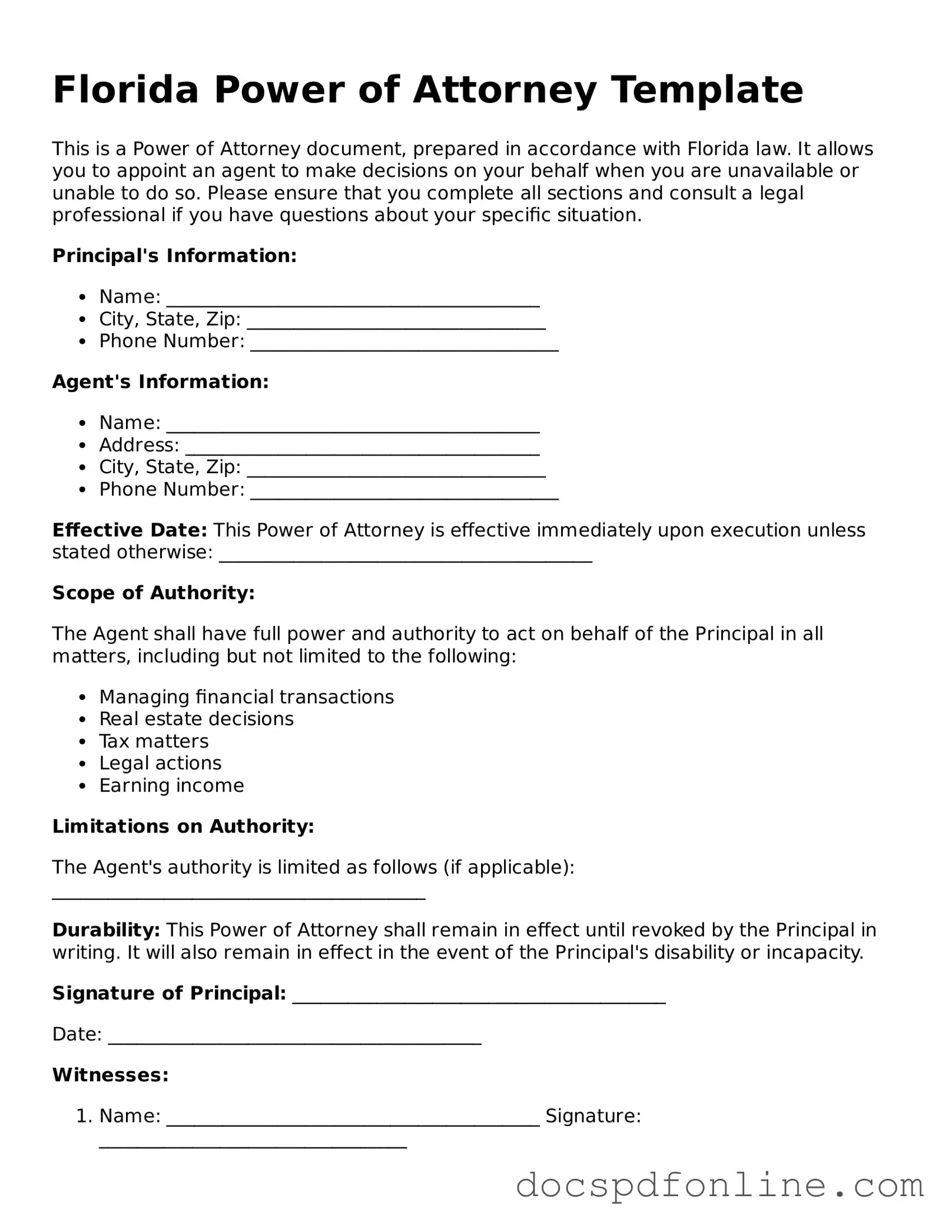Legal Power of Attorney Template for Florida
The Florida Power of Attorney form is a legal document that allows an individual, known as the principal, to designate another person, referred to as the agent, to make decisions on their behalf. This form can empower the agent to handle financial, medical, or legal matters, depending on the specific powers granted. Understanding this form is essential for anyone considering delegating authority to ensure their interests are protected.
Launch Editor Now

Legal Power of Attorney Template for Florida
Launch Editor Now
Save time — finish this form fast
Finish Power of Attorney online — edit, save, download made easy.
Launch Editor Now
or
↓ PDF File
